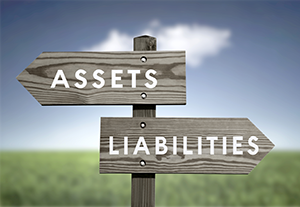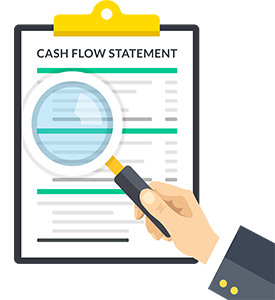 A new year. New resolutions. Here are five ideas to consider to help improve your financial health in the upcoming year.
A new year. New resolutions. Here are five ideas to consider to help improve your financial health in the upcoming year.
- Save more for retirement. Plan for the future by feathering your retirement nest egg. For instance, you can contribute up to $20,500 to a 401(k) account in 2022, plus another $6,500 if you’re age 50 or older. Plus, your company may provide matching contributions up to a stated percentage of compensation. And you can supplement this account with contributions to IRAs and/or other qualified plans.
- Update your estate plan. Now is a good time to review your will and make any necessary adjustments. For example, your will may need to be updated due to births, deaths, marriages or divorces in the family or other changes in your personal circumstances. Also review trust documents, powers of attorney (POAs) and healthcare directives or create new ones to facilitate your estate plan.
- Rebalance your portfolio. Due to the volatility of equity markets, it’s easy for a portfolio to lose balance against your investment objectives. To bring things back to where you want, review your investments periodically and reallocate funds to reflect your main objectives, risk tolerance, and other personal preferences. This will put you in a better position to handle the ups and downs of the markets.
- Review, consolidate, and lower debt levels. One sure-fire method for improving your financial health is to spend less and save more. Start by chipping away at any existing debts. This may mean giving up some luxuries, but it’s generally well worth it in the long run. Pay extra attention to debts with high interest charges like credit card debt. If possible, consider consolidating several of these debts into one or two obligations if you can lower your interest rate in the process.
- Contingency planning. No one can foresee every twist and turn that 2022 will take. To avoid potential financial hardship, look to improve your emergency fund by setting aside enough funds to pay for six months or more of your expenses in case of events like a job loss or a severe health issue.
These five tips can help you thrive in 2022!


 Your net worth changes over time, reflecting how you spend your money. For example, if you have tons of bills and spend more than you bring in, your bank account balances will be lower. If you spend a lot on your credit cards, your debt will go up. The net effect is a lower net worth.
Your net worth changes over time, reflecting how you spend your money. For example, if you have tons of bills and spend more than you bring in, your bank account balances will be lower. If you spend a lot on your credit cards, your debt will go up. The net effect is a lower net worth. This long-standing idea means taking steps to make your balance sheet shockproof by building liquidity. Like a frontier outpost or an ancient walled city, businesses that prepare for a siege—in the form of a recession, natural disaster, pandemic, or adverse regulatory change—can often hold out until the crisis passes or the cavalry arrives.
This long-standing idea means taking steps to make your balance sheet shockproof by building liquidity. Like a frontier outpost or an ancient walled city, businesses that prepare for a siege—in the form of a recession, natural disaster, pandemic, or adverse regulatory change—can often hold out until the crisis passes or the cavalry arrives. Understanding how our tax system works can be tricky for anyone. Whether you’re an adult who never paid much attention to the taxes being withheld from your paycheck or a kid who just got his or her first job, understanding the basics can help refine and define questions you may have.
Understanding how our tax system works can be tricky for anyone. Whether you’re an adult who never paid much attention to the taxes being withheld from your paycheck or a kid who just got his or her first job, understanding the basics can help refine and define questions you may have. When tracking and planning your business objectives, it’s easy to focus your analysis on two reports — the income statement and balance sheet. But one of the primary keys to your business’s success relies more on how you handle the money flowing in and out of the business. The appearance of a solid profit can hide a lurking cash flow problem.
When tracking and planning your business objectives, it’s easy to focus your analysis on two reports — the income statement and balance sheet. But one of the primary keys to your business’s success relies more on how you handle the money flowing in and out of the business. The appearance of a solid profit can hide a lurking cash flow problem. Maybe you’re behind on paying your bills because of circumstances outside of your control. Or perhaps there’s been an error in billing. Either way, these scenarios may lead to a run-in with a debt collector. Fortunately, there are strict rules in place that forbid any kind of collector harassment in the U.S. If you know your rights, you can deal with debt collection with minimal hassle. Here’s what to remember:
Maybe you’re behind on paying your bills because of circumstances outside of your control. Or perhaps there’s been an error in billing. Either way, these scenarios may lead to a run-in with a debt collector. Fortunately, there are strict rules in place that forbid any kind of collector harassment in the U.S. If you know your rights, you can deal with debt collection with minimal hassle. Here’s what to remember: